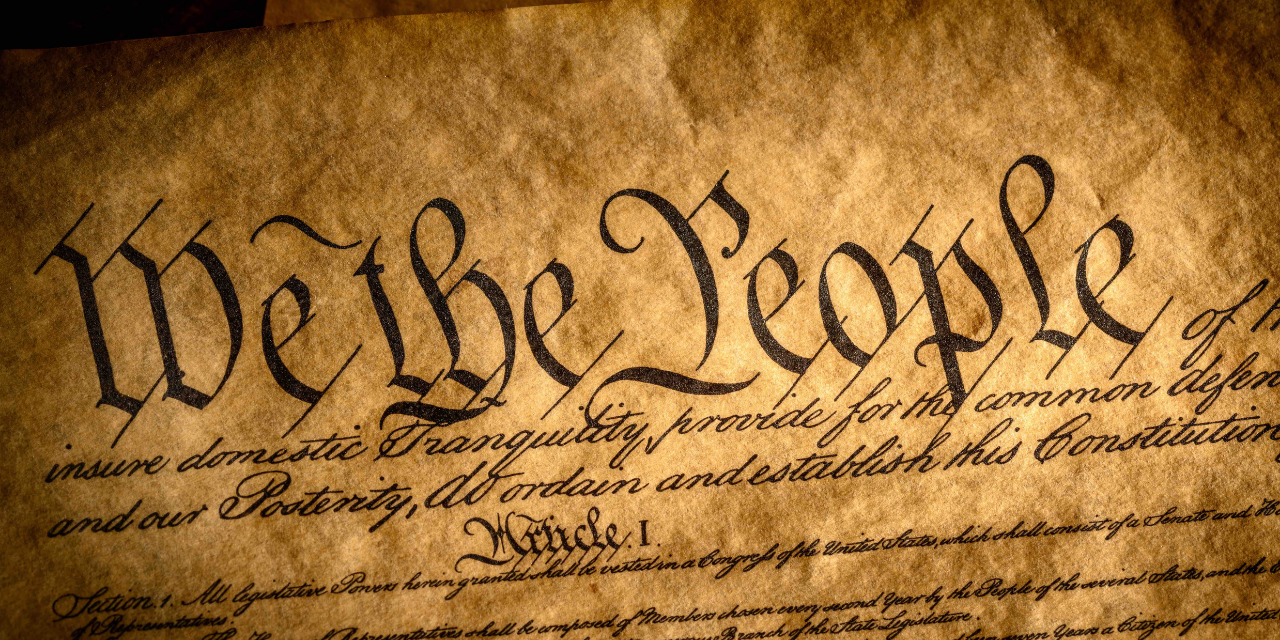No, the following is not satire from The Babylon Bee. The United States government recently put a “harmful content” warning on its website dedicated to preserving the nation’s historical documents for historians, researchers and the general public. What on earth is going on?
The National Archives and Record Administration (NARA) is an agency of the federal government. It describes itself as “the nation’s record keeper.” It retains documents and materials created in the course of business conducted by the United States federal government that are important for legal or historical reasons.
NARA hosts its historical documents on a website called National Archives. If you want to view a full-size copy of the U.S. Constitution, for example, you would start your search there. Once you get to this page, you can dig deeper and look at an enlarged copy of the original Constitution in the National Archives Catalog.
That’s where things get interesting. At the top of the page, you’ll notice the following warning: “Harmful Language Alert: see NARA’s Statement on Potentially Harmful Language.” What could be “harmful” about the Constitution, you wonder? So, you click on the helpfully provided hyperlink to see “NARA’s Statement on Potentially Harmful Language,” only to find a litany of all the potential offenses you could suffer by reading the Constitution, including some items that may:
- reflect racist, sexist, ableist, misogynistic/misogynoir, and xenophobic opinions and attitudes;
- be discriminatory towards or exclude diverse views on sexuality, gender, religion, and more;
- include graphic content of historical events such as violent death, medical procedures, crime, wars/terrorist acts, natural disasters and more;
- demonstrate bias and exclusion in institutional collecting and digitization policies.
And the trigger warning appears across the top of all document pages in the National Archives Catalog, not just the Constitution.
So, when did the federal government decide that we needed a warning in order to read the documents that have formed the foundation of our country and reflect its history?
In June 2020 NARA formed an internal committee to “identify issues of racial inequality in both our customer-facing operations and internally within our workplaces, in pursuit of an equitable and inclusive environment for all employees and customers.” Of the many recommendations the committee came back with, one in particular had to do with trigger warnings:
“Engage in a comprehensive reparative description program, ensuring that our historical records are described using respectful, accurate, and discoverable terminology. Alert users to potentially harmful content in the National Archives Catalog; create a road map for correcting harmful language; and develop processes to correct description for under-described and over-described records.”
I’m not sure whether the proper reaction to this bureaucratic babble is to laugh, cry, or express indignation. Are researchers, historians, and your average high school students not aware of the realities of 18th Century America, including the existence of slavery, the status of women, and social conditions that don’t exist today?
If they are not aware, then shame on our schools. If they are aware, then there’s no need for an apology tour.
Instead of apologizing for our Founding Fathers and placing trigger warnings on the Constitution and the Declaration of Independence, perhaps our schools – and the National Archives – could point out that, as G.K. Chesterton, the English writer, once said, “America is the only nation in the world that is founded on a creed.”
That creed – that all men are created equal – is both a statement of fact and an acknowledgement of the process involved to make it a reality. As a nation, we understand – or used to, at least – that we, as a people, had our flaws, and still do, because we are fallen creatures and human nature never changes. But we also used to understand that nation-building is a process, and indeed, that our progress over time made us better.
Our creed sets us apart as the greatest nation in the history of the world, even as we continually strive to meet that ideal. Let’s celebrate that and stop apologizing.
Photo from Shutterstock.






